Space can be lonely and cold, but during the long voyage to her people’s new home, Twilight finds the time to talk with her friends about what their new world will be like.
A Homeworld crossover. Written and edited in 9 hours as a speed writing exercise.

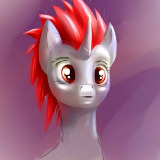

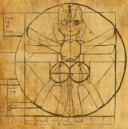
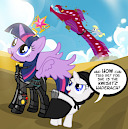

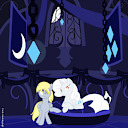
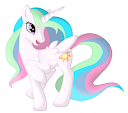
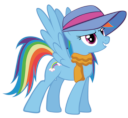

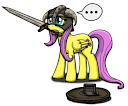

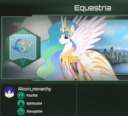
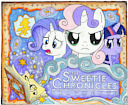
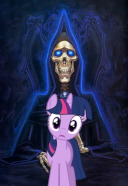
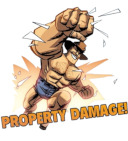





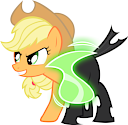
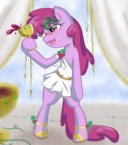

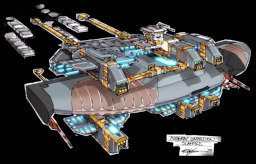
This wasn't quite what I expected out of a Homeworld crossover.
But you didn't act dumb writing a Homeworld crossover and that's all I needed to like this story.
6066599
Thanks! I... think?
6066603: Is good story. 10/10.
It's double funny because she fled with G1, it seems, so it's almost a double-crossover-sort of? Does MLP crossover with itself?
A nice Story, I did not understand what was going on until about the half way point, then every slowly came together in a scary way.
Over all, It's good.
I wonder if this is what Karan Sjet was thinking about as the mothership left orbit?
Nicely done.
That's deep, saddening and a interesting take on Equestria. It also says much about just why Twi is só important to Celestia and Luna.
All in all, a nice story. Have a like and a follow.
Edit: I just realised I was already following you XD guess that shows what I think about your writing.
Ooooh! I was initially confused before all the pieces started to fall into place. Nice build-up there.
Huh. Interesting. It might have made more sense if I was more familiar with the game, but still, I enjoyed it. :)
Homeworld was and remains one of my favorite PC game series of all time. I will read this with high hopes.
Oh.
Twilight.
That Twilight.
clever.
Pretty depressing, the isolation.
At least Karen had a few hundred thousand fellow survivors to fight alongside.
Say hello to Sedna on the way past, okay?
The scope of Twilight's loneliness (and the meaning of the titles) hits hard midway into the story. I am still curious about the circumstances of AJ's death.
6070338
I'm glad you liked it! Speed writing exercises can be really hit or miss, so I'm glad this one hit. As for poor AJ, she was in her cryo-pod along with the other 500,000 colonists when the attack started. With the Mothership not fit for combat, the cryo-pods were attacked along with the rest of the planet, and she and the other colonists were killed.
Also, typo corrected.
6070400 Aww, that's way more rational than an insane Twilight killing her to extract her DNA!
I suppose interpreting it that way is a case of Death of The Applejack.
I can't decide whether this is depressing or hillarious. Either way it's very well done.
As we speak I am hunting around for my discs. This will be played again, and there will be much salvaging.
6070679
Thank you! Ever since I played the game, the fact that the attack just happened to come when the mother ship wasn't around to be destroyed always struck me as curious. I've fiddled with a few different stories around the theme of the mother ship still being in dock when the attack comes. this one just got out first! Glad you enjoyed it.
Also, forget the disks. I highly recommend the remastered edition. It's fantastic.
This is awesome, you don't really see much Homeworld stuff fanfic-wise (even crossovers), you'd think that a remastered homeworld would gain the franchise some new fans.
Still, this was a fun read.
When I went into this, I had never heard of Homeworld. But reading this made me interested, so I looked around and borrowed a friends copy, and started playing. So far, it's super fun! So good job for writing such a wonderful fic (and in 9 hours too!).
6070727 )
)
The whole "not around to be destroyed" thing could be considered a convenient plot element.
The more pressing question is why the fleet didn't hang around Kharak after they burned it as there was no longer any threat and a decent chance the mysterious large and forbidden ship will return?
(Answer: To allow time for salvage strike groups to be developed so that carrier and those two lovely destroyers can be placed in more responsible hands.
Discs are just fine here thanks.
HW: Remastered looks fantastic (the guys did a bang up job on textures and models), but plays terribly due to being based in HW2's game engine which does things very differently to HW1 and breaks several quite critical gameplay elements.
(Strike craft formations and salvaging being the biggest.)
HW:Orig > HW:Remastered any day of any week.
And thats how equestria was made!
6077514
By a pregnant lunatic and a horse pretending to be a pagan goddess.
I really don't think I have the context to appreciate this, but it had some interesting ideas anyway. I hope the Homeworld fans appreciate it.
I hope the Homeworld fans appreciate it.
Mhm, mhm, yeah you've mentioned that a whole bunch Twilight, any particular reason or-
-Ah. This explains EVERYTHING.
6098157
The bare bones of the Homeworld storyline is:
A Mothership full of people fly off into space, meet some bad people, meet some nice people, meet some mad people, meet some more bad people, defeat the bad people.
The title "We Were Still in the Scaffold" refers to the grey metal structure that holds the Mothership during the construction stage.
If you watch a playthrough of mission 1 you will see it. https://youtu.be/NqTpl_d3D7g
The chapter title "It came early" refers to an event that the player discovers footage of during mission 3. https://youtu.be/zOPB5TZi7K4?t=441
Twilight and Applejacks ship was a victim of bad timing, the "it" seems to have arrived when the players ship would have been elsewhere (during mission 2).
Oh mah gerd, how did I miss this? I love Homeworlds! D:
...Huh. A crossover with Homeworld that somehow is only just barely about the series in question while still keeping the tone of loneliness and the scale of the mothership. Very impressively-written, and I like this version of Twilight (along with all the subtle details that make it increasingly obvious what's going on as time passes), but perhaps a tiny bit too despair-inducing for me.
Still, gotta admit; if Equestria is a utopia by Earth standards, it must be heaven by the standards of Kharak.
A story of gradual horror that plays the heartstrings like a harp.
Now you can add the sci-fi tag to this!
I am almost required to like this on account of a Homeworld crossover that somehow manages to work at all. Almost. Then you go and make it an origin story and give us a deeply melancholic tone with amazingly effective characterization.
...Thank you.
7308718
I am glad you liked it. It was a bit experimental but I'm very happy with the end result.
I might be a bit late to the party, but having just re-read this after almost a year, I have to leave a comment.
I love Homeworld deeply, so you can imagine my joy when I first discovered the (as far as I know) only crossover there is between these two franchises. This beautifuly melancholic and bittersweet story managed to send shivers down my spine, just as the original Homeworld did. What's more, you managed to neatly tie together lore from both sides, which can often be a challenging task. Although it may be "just" a one shot, if you ever think about doing another such crossover, be it a sequel or something completely different, please don't hesitate.
So, thank you very much for writing this piece, I've enjoyed it immensely!
7483220
pinkie.mylittlefacewhen.com/media/f/rsz/mlfw4841_medium.jpg
You make little writer Twilight happy!
I have thought about it! The problem -- or I should say, the reason I hesitate -- is because there are really four themes to Homeworld: the melancholy, tactical combat, fear of the unknown in space, and revenge. The first is the biggest story theme I would say, so it's what I focused on here. A longer crossover though, would have to include at least one of the other three, and that'll substantively change the tone.
Basically, I could write another crossover, but it wouldn't be We Were Still in the Scaffold. It would have to be its own new thing.
Well, it certainly grabs your attention quickly. I don't waste my time on a story if I'm not hooked within the first three paragraphs. This one has quite the hook.
I don't know what RU are, but they seem to be some sort of resource? I am completely unversed in Homeworld, which I'm vaguely aware is a video game set in space during an alien invasion. We'll see if I can figure out what's going on.
I'm assuming this is more Homeworld stuff? I'm not sure whether I should look it up on the wikia, but I'll assume that if it's important, the author will explain for those who haven't seen the source material.
So she's in poor health? It's taking a lot of effort to move around. And I wonder who she's talking to.
Um, okay. Twilight is pregnant. And all alone on a ship with no doctor. I guess that would explain why she's eating three meals at once? Also, why she's grunting so much moving around. And stopping for breath on a simple walk.
Okay, so the Celestia she is talking to is her unborn child. I still feel lost, here.
...Alright. She mentioned DNA stocks in the ship. She impregnated herself with a clone of Celestia? She's going to repopulate a planet with ponies. I think I'm starting to figure it out.
Oh, oh ho! I didn't figure it out until the end.
That's a cute little origin story. And the end goes all the way back to the beginning. Very nice.
Holy hell. That's gonna leave me fucked up for a few days...
8491506
Man, it was supposed to be a happy story!
7483404
It's strange to respond to a comment after more than a year has passed, but when I saw it today it got my wheels turning and I couldn't help but respond (also, lest I be accused of false modesty, I have attempted my own crossover, so I've done some of the same thinking about the game's themes). I'm going to go into some very spoilerific detail about the games, so the rest of my comment is in spoilers.
In all honesty, I can't agree with your description of the main themes of Homeworld. I see melancholy as a mood the games sometimes evoke and sometimes do not evoke, and tactical combat seems more like a gameplay structure than a theme to me. Moreover, although I would agree that fear of the unknown and revenge are themes, I don’t think they’re major themes, since in all of the games they tend to be emphasized in a few missions and downplayed in others. For example, in Missions 4 and 5 of the original game revenge is clearly important, whereas it's not really mentioned or emphasized later in the game except to a limited extent in Mission 16. When you're fighting the Taiidan in Missions 10 or 14, your purpose isn't to get revenge for the destruction of Kharak, it's to penetrate Taiidan defenses on the way to your homeworld. Similarly, although fear of the unknown is clearly important in missions 2, 7, 8, 9, and 13, it is played down, sometimes to the point of virtual non-existence, outside of those missions, and even in those missions the purpose of facing the unknown is primarily an instrumental one, to return to your homeworld.
Instead, I would say that the game’s main theme is that, pithily, you should “Know thyself,” or at greater length that it is vital to seek out and know your origins, even in the fact of the strongest opposition. And not just your origins in the obvious genealogical sense, but also in a cultural and an intellectual sense. Only when you do that can you see how to move forwards, often into even broader questions of origin.
This theme is probably most obvious in Deserts of Kharak. In Deserts of Kharak, you, the player, are searching for the location of the Primary Anomaly in an effort to save your civilization from collapse due to resource shortage, and are opposed by the Gaalsien. You do have to move through fearsome, dangerous places in the course of your quest for the Primary Anomaly, and you do have to seek out revenge on those who killed and slaughtered your people, and people dear to you, but all of that is in service to the larger goal of learning about the Kushan and their place on Kharak. It turns out that the Primary Anomaly is the remains of the starship that brought your people to Kharak in the first place, and the Gaalsien—correctly!—believe that knowing this will lead to the destruction of Kharak. However, what they fail to see is that Kharak represents a dead end; although for a time civilization might continue if it were to adopt Gaalsien doctrines and retreat from space and knowledge of its origins, existing ahistorically, eventually Kharak would become unable to support even Gaalsien life, and all Kushan would perish. It is only by inviting destruction by the Taiidan that the Kushan can move beyond this dead end and into unlimited flourishing.
This, of course, leads into the original game, which takes the scope of knowing out slightly. Whereas in Deserts of Kharak you were searching, if unknowingly, for information about your people’s true origins on Kharak, in the original game you now aim at finding information on your people’s true origins, period, and are opposed by the Taiidan. By returning to your homeworld and discovering what it is like, your people will learn about where they came from as well as coming to it again. Again, you have to venture through fearsome and remote places like the Great Nebula or the Sea of Lost Souls, and you do take revenge on the people who destroyed your ancestors, but the main reason you do so is not, aside from mission 5, to deal with these things as such, but merely to use them in an effort to reclaim the knowledge of your homeworld. Traveling through unknown regions and into unknown dangers is merely an instrument of discovering your homeworld, as is taking revenge on the (many, many) Taiidan ships you encounter. In the course of the journey, you do learn a great deal about your people’s history, but ultimately the only way to fully understand your past is to return to Hiigara, which is now the seat of the Taiidan Empire and which they fear, correctly, will be lost to you if you return to it, leading to their own downfall. Again, though, it is only by inviting this destruction of a four thousand year old empire that the galaxy can move forwards, beyond the stasis created by its power and influence into a new age.
This, then, leads into Homeworld 2, which takes another conceptual step outwards, though it isn’t fully explained in the game. Now your search is for the tools needed to defeat the Vaygr invasion but, as in Deserts of Kharak, this turns out to be a search for information on your origins, or more exactly the origins of the entire galaxy. As you explore the galaxy for ancient and powerful weapons to use against Makaan, you learn a great deal about the previous galactic civilization, the Progenitors, who (it is stated in design documents) actually created the civilizations and peoples of the galaxy, including your own, and at the very least provided, if unwittingly, much of the technology and motivation for the current galactic civilization.
The only real deviation from this structure is Homeworld: Cataclysm, which many people would agree is not quite like the other games. It’s basically a zombie game in space, after all.
I hope you don't mind that I responded to such an old comment, and with such a long comment of my own, but like I said I've done some of the same thinking and, as you might imagine, am quite a big fan of Homeworld, so it just sort of popped right out when I saw yours.
8524323
img00.deviantart.net/228e/i/2015/067/8/4/twilight_s_jet_by_conrie-d8kwmrk.png
img00.deviantart.net/ff82/i/2015/029/7/5/homeworld_by_mrlolcats17-d8fuco6.png
I see your point here, but in my reading of the game, it misses one simple question: "Why?"
Why fight the Empire? Why go back to the homeworld, deep in hostile territory? Why not hide out in deep space, or on a remote planet? Why not leave the galactic plane, as Twilight does in this fic?
For me, the answer was: "Because there's nothing else." Their homeworld is gone. Their culture is gone. Their people are no more. Even if they settle on a virgin world, a few hundred thousand survivors are not enough to rebuild what was. Their species may survive, but what was lost is gone forever and will never be rebuilt.
They continue to the homeworld because they have nothing else to live for. They fight the Taiidan, the raiders, the nebula raiders, and anyone else who stands in their way because they have nothing to lose by fighting. And when the opportunity presents itself, they destroy the fleet that ravaged their world, they destroy the Empire it came from, and they slay the Emperor who gave the command, because they have no reason not to.
Fleet Command reads off your orders in a dry, sterile voice, I don't imagine it as a lackluster VA. I see it as a tactical officer's dead-eyed stare, doing his job because he doesn't know what else to do.
For me, the ending of the game isn't about knowing themselves, or discovering themselves. They haven't learned anything new. In a way, there's nothing left to know. They will rebuild their culture anew on this world. What they are is now, more than ever, theirs to define. Instead, the ending is about catharsis. The calm after the storm. The stress, the nihilism, the loneliness, and the need for revenge have passed. They can stand on the surface of their new world, and look at the strange animals and trees, and know that one day, this will be home.
pre00.deviantart.net/36a3/th/pre/f/2013/242/b/6/in_space_by_rublegun-d6kdo9x.png
I agree that this theme dominates Deserts of Kharak, particularly with the player's knowledge of what will come as a result of rediscovering the hyperspace core. In many ways, the struggle between the Coalition and the Gaalsien is a struggle between the unknown future, with all it's potential wonders and terrors, vs the comforting certainty of slow decline.
I also agree that the fact that the Gaalsien are correct actually reinforces that theme. They said that Kharak would be destroyed, and it was. The Coalition thought that the hyperspace core held the key to rediscovering themselves as a people, and it did. I really liked your analysis here.
I'm just not sure that that carries through into the later games. It's like Deserts of Kharak is a story about the fear of a future with nuclear power, and Homeworld 1 is a story about the survivors of an atomic war.
cdn-img.fimfiction.net/user/0ah7-1431823489-61368-256
While I see what you're going for here, both Homeworld 2 and Cataclysm actually lost me in this regard. I think they failed to establish consistent themes. Cataclysm was an action movie in space without much depth, while Homeworld 2 never bothered to explain anything, which often made the narrative feel confusing or overwrought.
If I had to interpret HW 2, I'd probably favor your interpretation here, but I feel you're projecting interesting themes rather than those themes being present in the game.
cdn-img.fimfiction.net/story/qmjt-1432448610-52106-medium
Actually, after reading this, I kind of want to write a HW story again.
8524538
I would have to disagree, somewhat. The resources available on board the Mothership to rebuild their culture and civilization, not merely their species, are actually fairly great, or can reasonably be inferred to be (it would be reasonable to suppose that they included many important books in some kind of on-board archive, for example, since this could be done with little difficulty and much possible value). Will the destruction of Kharak cause a massive discontinuity? Obviously, yes. But if you compare it to similar events in our history--things such as the Bronze Age Collapse or the fall of Rome or the like--then the Kushan actually seem in a much better position to rebuild, should they choose to. They don't have structural factors preventing it, aside from the Taiidan (admittedly a pretty major structural factor!).
To make a concrete comparison, the situation of the Mothership following Kharak, should it choose to colonize some planet, is as if you peeled up Chattanooga and its suburbs, transported it through space, and plopped it down on an empty alien world (with, of course, all of the merely material needs of the city adequately taken care of, given that Chattanooga is not designed for that whereas the Mothership was specifically intended to colonize a new world). If that were to happen, it seems to me that Chattanoogan culture, as it developed, would be clearly continuous with American culture, even though comparatively speaking the situation seems roughly as traumatic (at least so far as the situation at the end of Mission 3 is concerned).
So for me, the question they face then becomes whether to rebuild their cultural and civilization in a place suffused by their own past, where they're secure to both explore that past and chart their future versus choosing whatever habitable planet they come across and trying to do the same, but inevitably severed from the places and peoples that shaped their history (granting that they take measures such as flying well out of the galactic plane to escape the Taiidan), not as much a cry of "We die either way, we might as well die for Hiigara". Now, the cultural background of the Kushan (60 years of work on the Mothership!) makes it pretty obvious which one they're going to choose, but it's still a choice, and one that I imagine they must have debated pretty heavily.
I suppose this is a bit of a distinction without a difference, but that's my view at least.
That's a plausible argument, and I would agree that my interpretation is more of a stretch than in the case of Deserts of Kharak.
That's...not quite true, actually. There are two important new things that they did learn over the course of the game, that were quite prominently featured, too. There's their relation with the Kadeshi, then there's the true account of their history following the last interaction with the Bentusi in Mission 11. You can point out that these come roughly mid-way through the game, rather than at the end, but their existence, especially the existence of the second one, was one thing I was thinking of. When a game rewards you for winning a battle with history, that means something.
In a sense, I suppose that's true, but I was going for quite a broad definition of "know". Merely by standing on the surface of their true homeworld, they now know something about the place their (very) distant ancestors lived, for example.
I largely agree with your points here, although Homeworld 2 did explain a little, though very little, and Cataclysm hinted at a very interesting story involving conflict among the Kiith that it then, unfortunately, took a very hard swerve away from. I did mention that I was specifically drawing on out-of-game documents and information to interpret Homeworld 2.
8524640
I think I'm going to make a new story based on this discussion.
But one thing I wanted to call out particularly:
This is a really good point. The Gardens of Kadash mission tree was the place in the game where I most felt that history was the reward at the end. The sense of tragedy in murdering your (metaphorical) siblings only to discover your long lost past was palpable, and a huge addition to the game.
Fun fact.
Cloning someone from their DNA does not infact, bring someone back from the dead.
The only thing produced is an identical twin who doesn’t even share as many experiences as a natural identical twin.
I hope they have brain backups, if not twilight is pretty deluded.
The grief can do that of course.
9588089
She's gone slightly insane, being isolated so long.
9588140
Fair enough
Wait... wait that's not...
That's not Twilight Sparkle.
9874225
It's Version 1.0!
Those last 3 paragraphs were a bombshell o.o
Holyshit that changed so much. Loved it